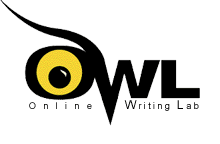



Use concordances to find:
1. All locations of a word in the Bible.
2. The original Greek or Hebrew translation of a word.
Want to find more about the original translation? Use a Lexicon.
Use a lexicon to look up detailed translations of a word from Hebrew, Greek, or Aramaic.
Need more information about the verse that you found? Use a commentary.
Use commentaries to read different interpretations on specific verses & passages.
Do you want more detailed commentary? Use the ATLA database.
Use the "Scripture" tab to find scholarly articles on specific passages.
Does the commentary mention a specific location you want to explore? Use an atlas.
Use atlases to see maps and learn more about the geography of the biblical world.
Do you want more detailed information about the people, places, culture, etc. mentioned in the commentary? Use dictionaries and encyclopedias.
Use general dictionaries & encyclopedias for more information, or subject-specific ones on medicine, archaeology, etc. to get detailed information.


Also known as peer-reviewed articles, scholarly articles are sources that are:
While you can find scholarly articles through general search engines, databases contain a feature where you can narrow your results to only scholarly articles.
The mission of Open Access Digital Theological Library (OADTL) is to curate high-quality content in religious studies and related disciplines from publisher websites, institutional repositories, scholarly societies, archives, and stable public domain collections.
Provides millions of articles from over 17,000 scholarly journals and other authoritative sources—including thousands of podcasts and transcripts from NPR and CNN as well as videos from BBC Worldwide Learning.

Books and eBooks often provide a broader overview and cover more information than a scholarly journal article.
 You don't need to read an entire book to use it in your research. Use the index at the back of a book to find the information you need.
You don't need to read an entire book to use it in your research. Use the index at the back of a book to find the information you need.

BS701-1830 Old Testament
If you find an article or book that you can't access, don't pay for it! Instead, submit an Interlibrary Loan request, and you'll receive articles within a few days!

Are you looking for a specific article, like an article that you found referenced in a bibliography? Search for the journal in Journal Finder, linked below:

Gordon College is New England’s top Christian college, located on the North Shore of Boston in Wenham, MA.
Gordon College | 255 Grapevine Road, Wenham, MA 01984 | Telephone 978.927.2300